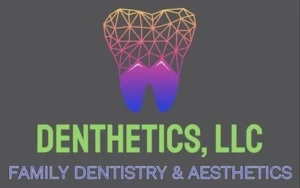What is Temporomandibular Joint Disorder (TMJ)?
Temporomandibular joint (TMJ) disorder is a medical condition that occurs when the jawbone becomes misaligned. The temporomandibular joint is one of the body’s most complex joints and connects the jaw to the skull. It is responsible for the many function and movement of your jawbone. It facilitates vital daily activities such as eating, talking, swallowing, and yawning.
TMJ can cause chronic jaw and facial pain and discomfort. Chronic headaches are a common symptom. Through state-of-the-art technology and advanced techniques, Dr. Mata-Stein can identify the cause of your discomfort and design a personalized treatment plan to help align your bite and relieve your discomfort.
Symptoms of TMJ/TMD
The symptoms of temporomandibular joint disorder can be mild to severe, such as:
- Popping, clicking, grinding sounds, lockjaw, and stiffness
- Migraine-like headaches and dizziness
- Facial swelling, pain, and fatigue
- Ear pain, tinnitus (ringing), difficulty hearing
- Pain in your shoulders, neck, and posture issues
Individuals can experience these symptoms with or without having TMJ disorder. Working with Dr. Felicia Mata-Stein is essential to determine the nature of your symptoms and rule out jaw and facial muscles as the source of discomfort.
Causes of TMJ Disorder
Your temporomandibular joint connects your skull with your lower jaw. The muscles around it enable you to move your jaw up, down, and side to side. The cartilage between the ball and socket portion of the joint allows you to eat, yawn and speak smoothly.
There is no single cause of TMJ/TMD, so it can be challenging to diagnose in some cases. Some of the common causes of TMJ disorder include:
- Night jaw movements related to sleep apnea
- Overbite, underbite, or crossbite
- Rheumatoid arthritis or osteoarthritis
- Cartilage or disk deterioration in the jaw’s joints
- Trauma or injury to the jaw joints or other muscles in the neck or head
- Jaw muscle fatigue from grinding, clenching, or other abnormal function
TMJ Treatment Options
We will design a custom TMJ treatment plan to keep your jaw aligned and your muscles free from pain and discomfort. To accomplish this, Dr. Mata-Stein will meticulously evaluate your oral structure and recommend a personalized treatment plan that addresses your needs. Depending on the details of your condition, she may recommend:
- Clear Aligners: These clear, removable plastic braces gently shift your teeth into the desired location over stages.
- Oral Appliance: Appliance treatment helps your jaw to rest in a proper physiological position.
- Full Mouth Reconstruction: This complete approach can change the shape of your teeth to support your bite’s comfortable and physiological position.
- Tooth Replacement: Filling the gaps between missing teeth with dental implants prevents other teeth from shifting.
- BOTOX: Helps ease tense jaw muscles and alleviate pain. BOTOX is typically a complementary treatment to other TMJ disorder therapy. Still, Botox may be all you need for specific symptoms! In addition, Botox for TMJ disorder symptoms can last up to 3 months.
Schedule A TMJ Treatment Evaluation
Contact our Kenosha dentist at
(262) 484-4102 if you are experiencing TMJ / TMD symptoms. Dr. Felicia Mata-Stein evaluates and treats patients for TMD / TMJ from Kenosha, Pleasant Prairie, Sturtevant, WI and many surrounding areas.
